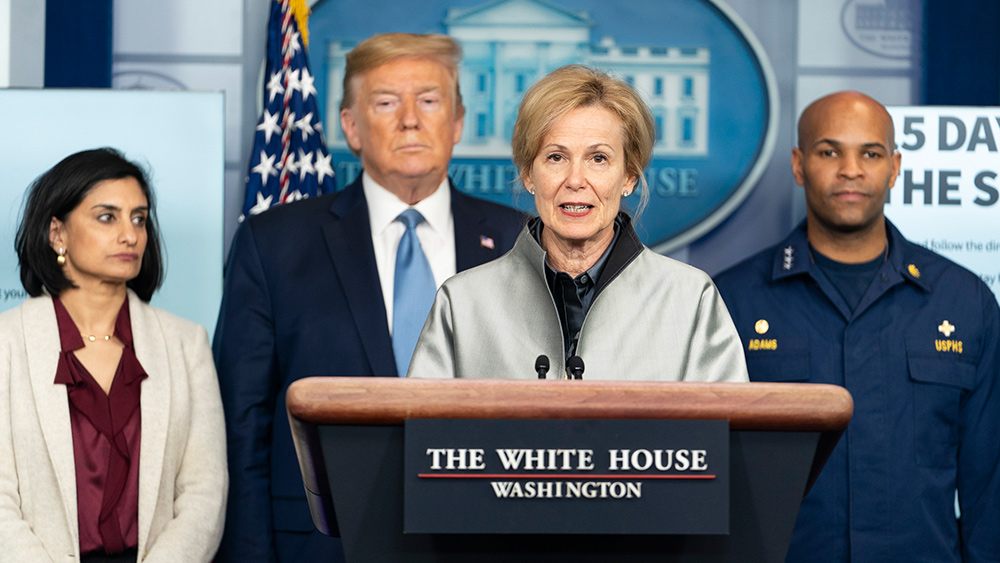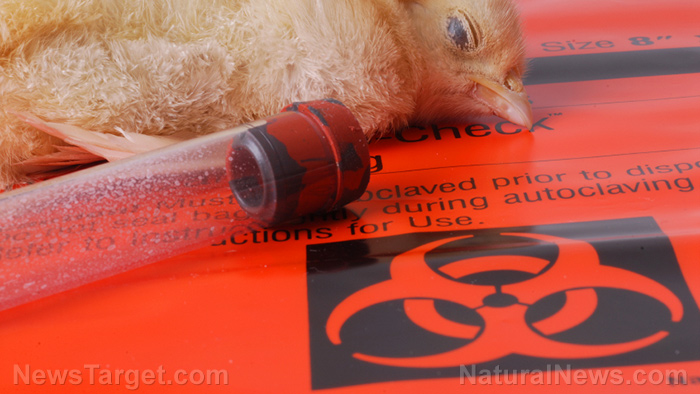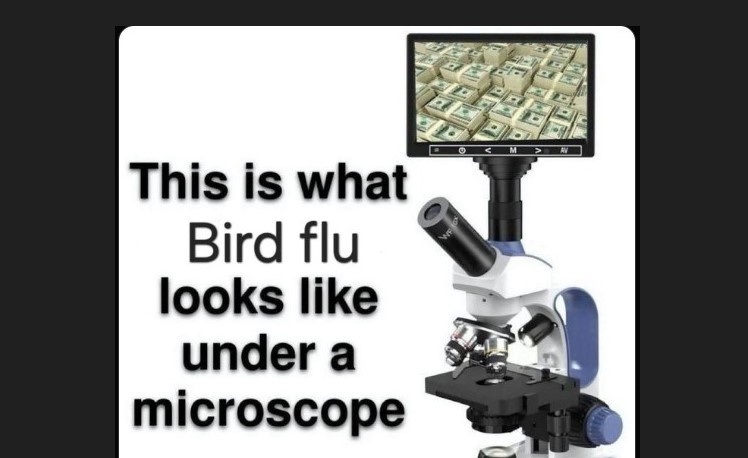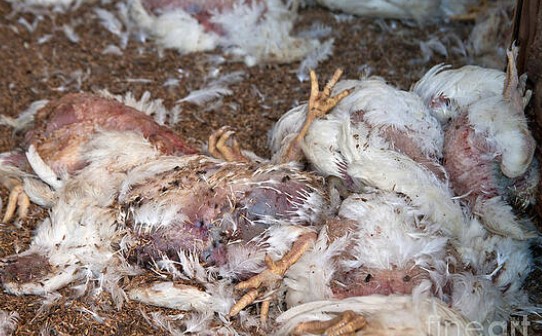Deborah Birx sparks controversy with new bird flu warnings
01/04/2025 / By Willow Tohi

- Former White House coronavirus response coordinator Deborah Birx is advocating for increased government action to address the potential threat of bird flu, warning that the U.S. is unprepared for a possible outbreak.
- Birx has called for weekly testing of individuals potentially exposed to bird flu, emphasizing the risk of asymptomatic spread, similar to COVID-19, which has drawn criticism for potentially inflating case numbers and stoking fear.
- Critics accuse Birx of fearmongering and replicating controversial COVID-19 strategies, such as mass testing and restrictive measures, which they argue could infringe on personal freedoms and lead to government overreach.
- Birx’s warnings have fueled conspiracy theories, including claims that the focus on bird flu is part of a larger agenda to control protein consumption and promote alternative food sources like lab-grown meat or insect-based proteins.
- Birx remains a divisive figure, with supporters viewing her as a dedicated public health advocate and critics seeing her as a symbol of government overreach. The debate highlights the ongoing tension between public health measures and individual liberties in the United States.
Deborah Birx, the former White House coronavirus response coordinator under the Trump administration, is once again at the center of a heated public health debate. This time, her focus is on bird flu, and her calls for increased government action have drawn sharp criticism from skeptics who accuse her of fearmongering and advocating for policies that could undermine personal freedoms.
Birx, who played a prominent role in shaping the U.S. government’s response to the COVID-19 pandemic, has been vocal in recent months about the potential dangers of bird flu. In a recent CNN interview, she warned that the United States is not adequately prepared to address the threat. She argued that routine weekly testing of individuals potentially exposed to bird flu is necessary to prevent a widespread outbreak.
Critics, however, have been quick to draw parallels between her current proposals and the controversial COVID-19 response strategies. During the pandemic, mass testing campaigns were implemented, often resulting in high numbers of reported cases, including false positives. Birx herself acknowledged in the CNN interview that increased testing for bird flu is essential because, as with COVID-19, much of the spread could be asymptomatic.
This approach has raised eyebrows among those who view it as a repeat of what they describe as the “pandemic propaganda” of the past. Critics argue that such testing could artificially inflate case numbers, stoking unnecessary fear and justifying restrictive government measures.
Birx’s recent comments have also reignited debates about the balance between public health and individual liberty. Some observers accuse her of using fear to push for policies that could infringe on personal freedoms, much like the lockdowns, mandates, and surveillance measures implemented during the COVID-19 crisis.
In her CNN interview, Birx attempted to appeal to the public’s intelligence, stating, “I find the American public to be incredibly smart.” Yet, her critics hope that same intelligence will lead Americans to question the necessity of her proposed measures and resist what they see as an overreach of government power.
Ulterior agenda
The broader context of Birx’s warnings has also sparked conspiracy theories and concerns about the global food supply. Some commentators have suggested that the focus on bird flu is part of a larger agenda to control protein consumption, particularly beef, and push for alternative food sources like lab-grown meat or insect-based proteins. These theories, while unverified, have gained traction among certain segments of the population, further complicating the public discourse around bird flu.
As the debate continues, Birx remains a polarizing figure. To her supporters, she is a dedicated public health official working to prevent another pandemic. To her detractors, she is a symbol of government overreach and the misuse of public health crises to justify restrictive policies.
Whether her warnings about bird flu will lead to concrete action or be dismissed as fearmongering remains to be seen. What is clear, however, is that the conversation around public health, personal freedom, and government authority is far from over. As Americans grapple with these complex issues, the legacy of the COVID-19 pandemic continues to shape their responses to new threats – real or perceived.
For now, the question on many minds is whether the public will embrace Birx’s calls for vigilance or reject them as an unnecessary escalation. In a nation still recovering from the scars of the last pandemic, the stakes could not be higher.
Sources include:
Submit a correction >>
Tagged Under:
big government, bird flu, conspiracy, Deborah Birx, deception, fear mongering, infections, influenza, insanity, lunatics, national security, outbreak, pandemic, Plague, propaganda, rational, skeptics
This article may contain statements that reflect the opinion of the author
RECENT NEWS & ARTICLES
Pandemic.News is a fact-based public education website published by Pandemic News Features, LLC.
All content copyright © 2018 by Pandemic News Features, LLC.
Contact Us with Tips or Corrections
All trademarks, registered trademarks and servicemarks mentioned on this site are the property of their respective owners.


















